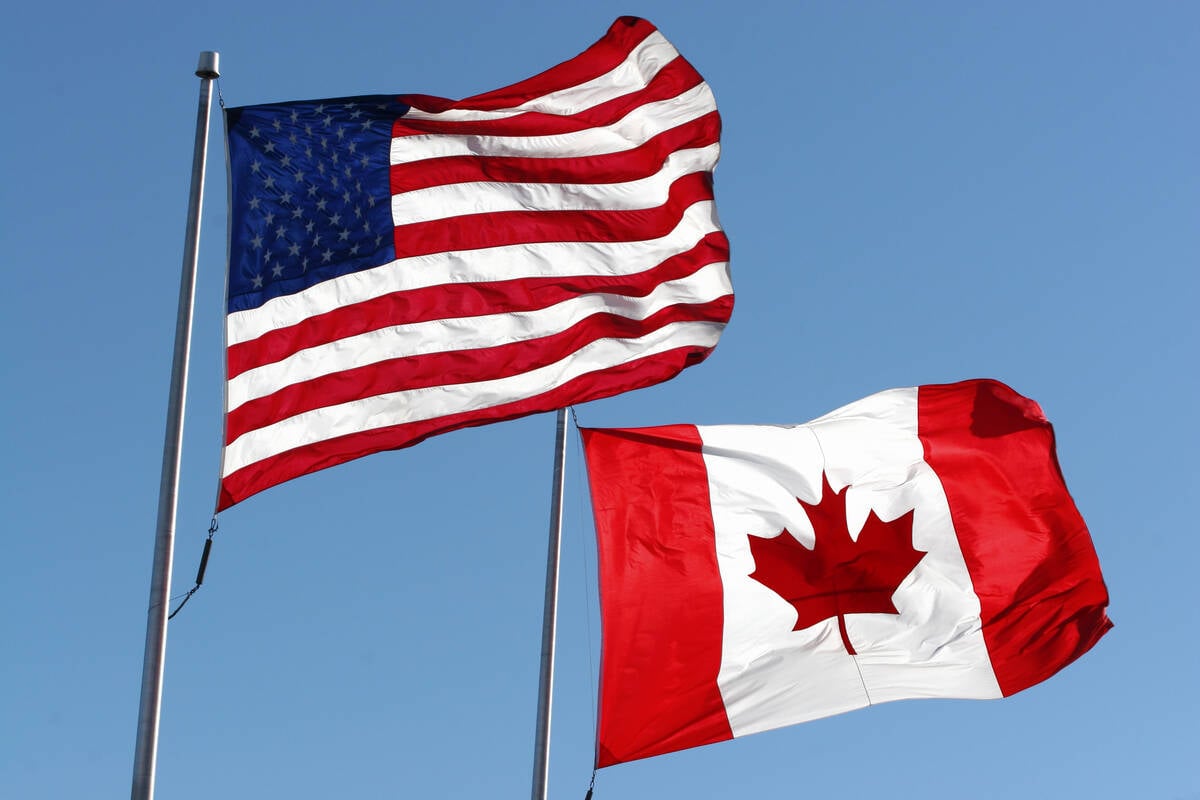An initiative by the Manitoba hog industry to encourage producers to gradually shift away from confinement stalls for pregnant sows is an important first step.
In a report released March 16, the Manitoba Pork Council committed to push for a phasing out of gestation stalls by 2025.
What’s important about this plan is that it is driven by the industry and gives control to the hog producers themselves.
The long timeframe should ease a major concern that producers might have with legislated changes. By giving farmers until 2025, farmers can include the necessary renovations in their long-term business plans.
Read Also

Trump cuts off trade talks with Canada
UPDATED: October 24, 2025 – 0910 CST – Adds comments from Prime Minister Mark Carney. Reuters — U.S. President Donald…
It eliminates the nasty surprise of added capital expenses that could be thrust upon farmers if it were an immediate mandatory change.
As well, the timing could hardly be better because many producers are likely looking at having to upgrade their existing barns or build new facilities by 2025 anyway.
Many of the barns were built during the hog boom of the 1990s and will soon face renovations as a matter of planned maintenance and renewal.
With clear guidelines in place, producers in Manitoba will know how best to proceed to ensure their businesses are viable for years down the road.
The Manitoba Pork Council’s proposal essentially rides on the coattails of a trend already happening in other parts of the world.
Many U.S. states have banned gestation stalls, Europe plans to do away with them by 2013 except for up to four weeks of allowed use, and Australia plans to do away with stalls by 2017 in most parts of the country and by 2014 in Tasmania.
As well, two major pork processors, Maple Leaf and Smithfield Foods, are pressing for stall-free sow handling.
It is all driven by the same public sentiment and consumer trend that have heightened concerns for humane treatment of all animals and is bringing change to farm animal productions systems worldwide.
The five freedoms for animal welfare developed in the United Kingdom have become key assessment standards for many around the world: freedom from thirst, hunger and malnutrition; freedom from discomfort ; freedom from pain, injury and disease; freedom to express normal behaviour; and freedom from fear and distress.
If producers can achieve these goals during the course of regular renovations, it would be foolish to do otherwise. The public will increasingly demand it, and producers in the end are in the business of marketing a product the public wants.
Added to this is the fact that one of the major objections to keeping pregnant sows together in a group pen has been alleviated through the use of electronic feeding systems.
In the past, the competition for food caused sow injuries and made it difficult at times for human handlers to manage them.
However, electronic feeding systems now allow sows to enter individual stalls for feeding only after they read their ear tags, which trip a latch, allowing an animal to enter.
As a result, the sows eat alone, away from their pen mates and the resulting competition.
Manitoba is the largest hog producing province in Canada, which makes its leadership on this issue pivotal.
With many of the obstacles removed through the present approach, we hope that organizations governing hog industries in other provinces will soon follow.
Bruce Dyck, Terry Fries, Barb Glen, D’Arce McMillan and Joanne Paulson collaborate in the writing of Western Producer editorials.














